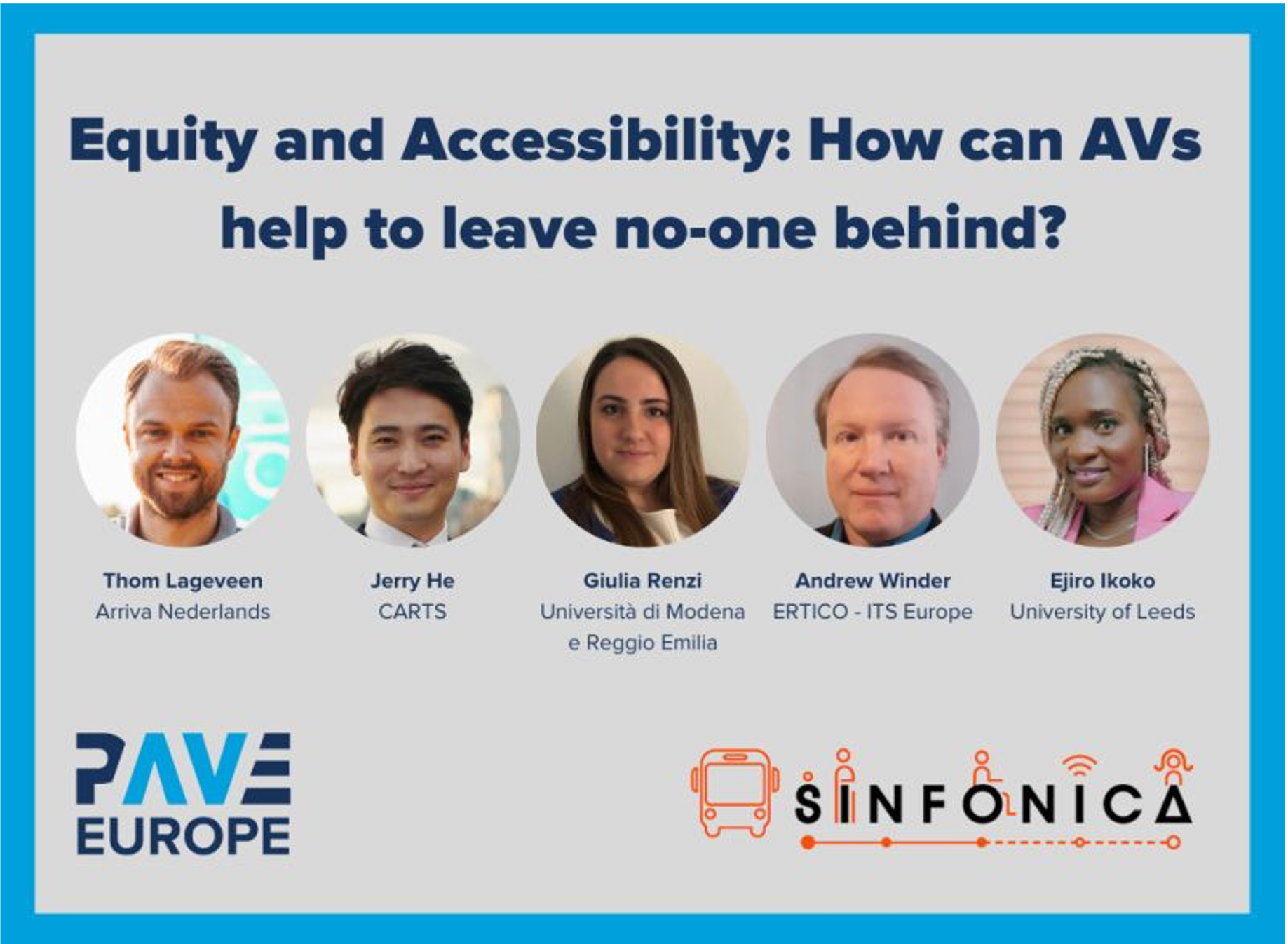On the 16th of May, the SINFONICA Project organised with PAVE Europe its first online webinar. We are very excited to share some of the outcomes of this webinar with you besides the link to the webinar to rewatch it.
Guido di Pasquale, managing director of PAVE Europe, moderated the event and made it possible to use the PAVE platform and network to reach out to all people that are interested in CCAM. Of course, new people to this interesting field are always welcome. Therefore, Guilia Renzi, technical coordinator of SINFONICA, introduced the project briefly and emphasized the importance of all different groups of society that need to have easy access to autonomous vehicles.
As the webinar was held for the specific Work Package 5, focusing on strategies, methodologies and policy recommendations of CCAM and the inclusion of people with mobility challenges. Andrew Winder, ERTICO, introduced the work done so far. He showed an overview of some of the trials with autonomous vehicles we identified in Europe and what kind of services they are running.
To couple this to an operator perspective, Thom Lageveen – from the SINFONICA Partner Arriva – explained briefly the necessary elements of an operation: safety, reliability and comfort and explained how to cover these topics with a CCAM service.
The second half of the webinar gave floor to Ejiro Ikoko, University Leeds, and Jerry He, Carts, besides the previous speakers for a small panel discussion. Interesting main points were:
- We need an inclusive booking system. Some people prefer a driver where they can pay in cash.
- There is no one size fits all. There are different gender perspectives which need to be considered. However, nobody is the same. During the day, the needs of a person can differ strongly, let alone for all different groups.
- The technology has been improved and increased during the past years. For example, within the United States of Amerika, there are quite some trials and operations up and running. In Europe we are having more pilots instead of continuously operating services. In addition, the speed is up until 25kmh, which results in lack of competition of other modes such as e-bikes or e-scooters.
- Legislation needs to change in Europe. There is a need for legislation that allows further development of AV in Europe. Moreover, there is a need of information regarding how to operate Avs correctly, and how to train staff and the vehicle itself to be successful.
- Creating coherence between technology and vulnerable groups is essential. This could start very practical. Use the whole service with different vulnerable groups to see which bugs there are, and how to solve them technically and during the operation.
- To move CCAM in Europe to a higher level, it is necessary to cooperate with the different levels.
The webinar was an opportunity to gain different perspectives on the topic of accessibility and inclusiveness for autonomous mobility and was a successful example of synergy between SINFONICA and CCAM stakeholders.
Authors: Berber Dotinga (Arriva)


